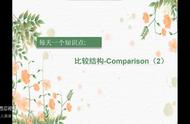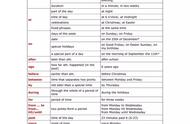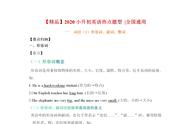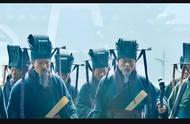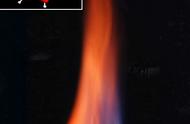(二)比较级和最高级
本课侧重学习的是三音节及以上的形容词和副词的用法,以及不规则的用法。
1、三音节及以上的形容词或副词的比较级和最高级
1)形容词的基本用法为:
A be more 形容词 than B
A be the most 形容词 in/of/among B
如:
He is more intelligent than Mike.
He is the most intelligent in his class.
2)副词的基本用法为:
A 动词 more 副词 than B
A 动词 the most 副词 in/of/among B
如:
He dances more elegantly than Mike.
He dances the most elegantly in his class.
2、形容词和副词的比较级和最高级的不规则变化
英语中有一些形容词或副词的比较级和最高级的形式变化是不规则的,常用的如下:
good/well better best
bad/badly/ill worse worst
many/much more most
little less least
far farther farthest
old older/elder oldest/eldest
clever cleverer/more clever cleverest/most clever
如:
He speaks English better than me.
She has more books than Jane.
Bobby is oldest in his class.
Mary sings the most beautifully in her class.
【注意】
如果某个形容词或副词是通过派生法构成的,即加了前缀或后缀,那么该词语的比较级和最高级按照三音节单词来变化。比如:
slowly是由slow加了后缀-ly构成的,所以它的比较级和最高级是more slowly和the most slowly。如:
David swims more slowly than Jack.

三、一课一题
根据本课的重要语法点,让我们来练一练吧,把下列句子翻译成英语。
1. 凯丽的鞋子比乔的更舒服。
2. 凯丽在班上是住得离学校最远的。
3. 凯丽比乔更聪明。
4. 凯丽比乔游得更快。







